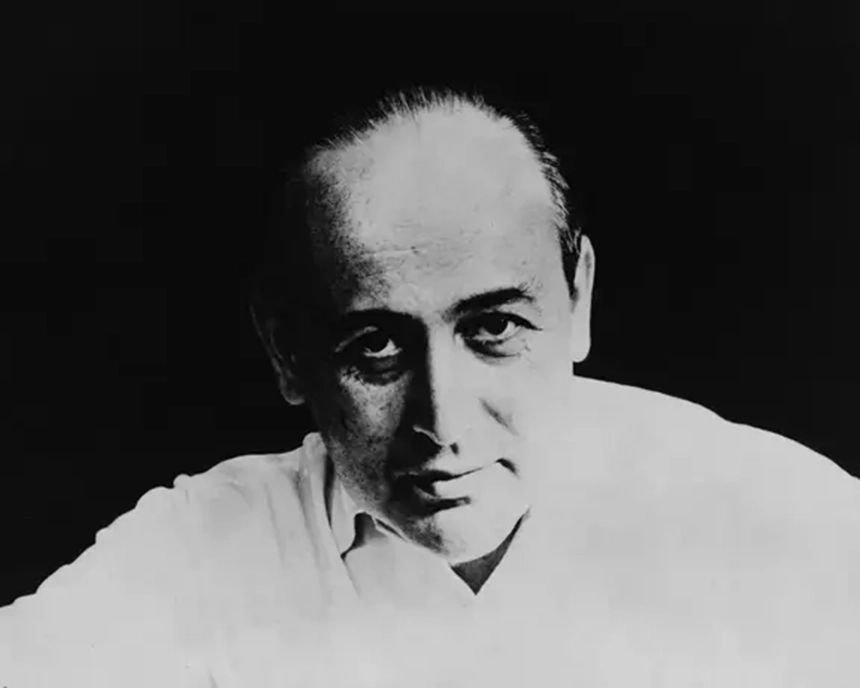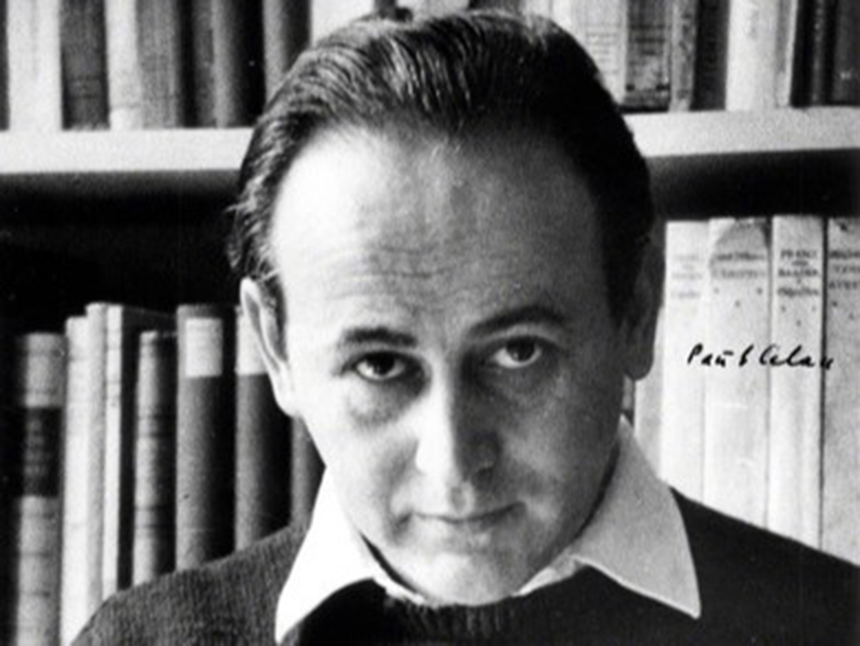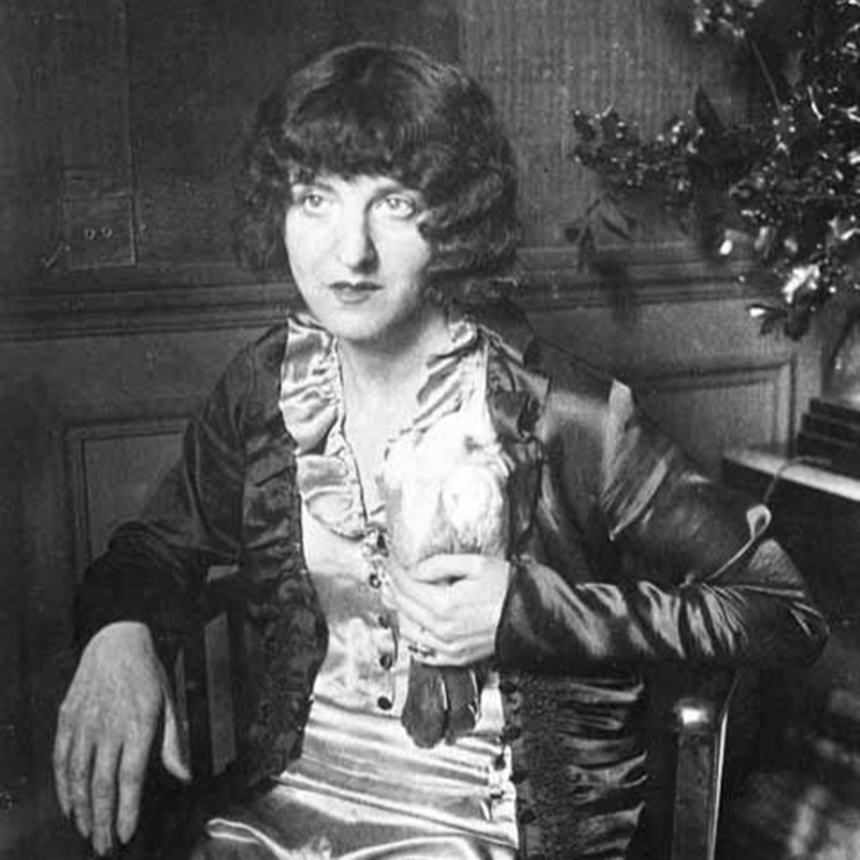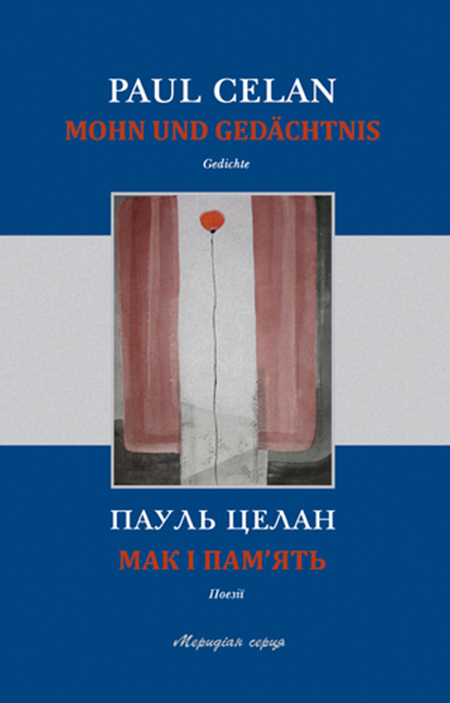A Jewish poet from Chernivtsi who wrote in German and fled to France: The tragedy of Paul Celan

[Editor’s note: The annual Meridian Czernowitz International Poetry Festival will take place in Chernivtsi, the birthplace of Paul Celan, from 5-7 September 2025.]
Petro Rykhlo, a literary critic, translator, and Professor of the Department of Foreign Literature and Literary Theory at the Yuriy Fedkovych Chernivtsi National University, discusses the life and works of Paul Celan.
Can Paul Celan be called a Ukrainian poet?
Yelyzaveta Tsarehradska: Today, we are talking about Paul Celan, a world-renowned Jewish poet from Chernivtsi who wrote in German. My interlocutor in this conversation is Prof. Petro Rykhlo, who translated all of Celan's poetry. Should we start by discussing how diverse Celan was? Can he be called a Ukrainian poet?
Petro Rykhlo: Calling him a Ukrainian poet would be a big stretch. It is undeniable that Chernivtsi is in Ukraine today, but when Celan was born, the city belonged to Romania. He was born in Romanian Chernivtsi, studied in Romanian schools, graduated from a Romanian lyceum, and had Romanian in his linguistic repertoire alongside his native German, which was spoken in the family. His mother attached special importance to his speaking the correct, high German literary language.
Alfred Gong, a poet who was friends with Celan (they were in Vienna together after World War II at some point and were quite close), said that German was Celan's mother tongue, while Romanian was his stepmother's language.
Celan had a very good command of Romanian. After the war, he ended up in Bucharest and worked at the Cartea Rusă publishing house, which promoted Russian literature. Celan translated several Russian authors into Romanian, including Lermontov's novel A Hero of Our Time and a collection of Chekhov's stories. Celan also produced some Romanian texts when he met with the circle of Romanian surrealists after the war. He wrote a number of poems and small prose texts in Romanian there. That is, Celan stood at a linguistic crossroads at some point. Had he stayed in Bucharest, he would have likely switched to Romanian and become a Romanian poet.
I don't think he could have become a Ukrainian poet. He left Chernivtsi at age 25, and the Ukrainian language did not have any official status in Chernivtsi under Romanian rule, of course. It was the language of an ethnic minority. Ukraine as a separate state did not exist then; it was part of the Soviet Union.
However, Celan knew Ukrainian, which is evidenced by the following fact. When Chernivtsi was liberated by the Red Army in 1944, Soviet rule was restored there, and the regional Bukovina newspaper was founded. Since the Chernivtsi region had many ethnic Romanians, the newspaper was published in Romanian for their consumption. Celan, who was then still called Paul Ancel, translated texts from Ukrainian, i.e., from the Ukrainian-language Soviet Bukovina newspaper, into Romanian to be published in the newspaper's Romanian version. To do these translations, he obviously had to know the original language. A third of his class in the Romanian lyceum was comprised of Ukrainians, who apparently communicated with each other in Ukrainian. They had to do it clandestinely, as speaking a language other than Romanian at school was forbidden in Romania.
The Ukrainian language was, so to speak, familiar and close to Celan. He knew it, unlike Russian, which he learned later. Starting with the first arrival of the Red Army, when Bukovina was simply annexed by the Soviet Union in 1940, Celan began to learn Russian from scratch. In contrast, Ukrainian was much closer to him since childhood. But a poet is defined by the language in which he writes. Thus, Celan is, without a doubt, a German-language poet.
On Celan's pen name
Yelyzaveta Tsarehradska: 'Celan' is a pen name. I often hear people put the stress on the first syllable, while it clearly fell on the second syllable when the poet was in Paris. What is known about why he adopted this nom de plume?
Petro Rychlo: This pseudonym is merely an anagram of his real surname, Ancel. This is how it was written in Romanian, while the German spelling was Antschel. The pen name 'Celan' was produced by switching the two syllables around in the Romanian version.
Regarding the stress pattern, Celan said that the first syllable had to be stressed, as is required by the German language in most cases. However, since he lived in France, they would accentuate the second syllable, which is characteristic of the French language.

On Celan's move to France
Yelyzaveta Tsarehradska: Why did Celan move to France? What do we know about it? Was there some drama involved in this choice?
Petro Rykhlo: The drama was undoubtedly there, ever since he intended to leave Soviet Chernivtsi. He lived through that year, 1940–41, under Soviet rule before the war reached Bukovina. Of course, he felt the pressure of Russification and, above all, ideological pressure, which he certainly disliked.
As a student, Celan even tried to somehow organize a group that was supposed to complain to the dean about the dominance of Soviet ideology. However, the dean explained to him very clearly that opponents of the Soviet system faced exile to Siberia. After that, Celan did not take any more risks. However, he knew this system from the inside, so he absolutely did not want to stay in the Soviet Union.
First, he did not want to remain there as a poet. Writing in German, he had no prospects in Soviet Bukovina. In 1944, he again enrolled at Chernivtsi University and attended lectures in Russian and perhaps even some in Ukrainian. But he certainly understood how unfortunate it all was. He grasped that he had no prospects as a German poet because German was considered the language of the enemy. It was held in very low esteem. Celan was forced to leave the Soviet Union to preserve his native language as a poetic tool.
From the USSR, Celan could only go to Bucharest. As a former Romanian citizen, he had the right to emigrate officially. The Soviet regime allowed former Romanian citizens to leave for Romania, and Celan took advantage of the opportunity. It was the mid-1940s when significant political changes occurred in Romania, and the communists came to power. Celan saw that this system had caught up with him again and decided to secretly cross the border, in fact, illegally escaping from Romania. He fled to Vienna and stayed there for six months.
In Vienna, Celan made attempts to put down roots and adapt somehow. But, of course, post-war Vienna was all bombed out. It was a city divided into four occupation zones, and Celan did not see his future there. So, he went to France. One reason for this choice was that he had already studied for a year there before the war. Not in Paris but in Tours, because life in a province was cheaper. Still, he had already lived in France, spoke French perfectly, and had no problems adapting to life there.
On Celan and his choice of writing in German
Yelyzaveta Tsarehradska: Let us discuss the vital and painful issue of language, which is currently relevant for many people in Ukraine. Celan chose to write in German, even though it was the language of the Nazis. He spent time in a labor camp, and his family died in a concentration camp. One of his most famous poems about the tragedy of the Holocaust is "Death Fugue," which contains the following lines: "play death more sweetly / death is a master from Deutschland." So, how could he position himself as a German-language poet and generally use this language? How was this choice of language manifested in Celan's life? Did he reflect on it? What do we know about it?
Petro Rykhlo: This is a difficult question and a difficult choice. The thing is that a poet can only write in his native language. One can speculate, of course, that Celan knew eight languages and could have become a poet in any of them. Still, there is a very significant difference here. The deep images that emerge in the poet's imagination and those emotional outbursts can only come from his native language. German was Celan's mother tongue, while all the other languages were learned, even though he did acquire them in a conducive environment. He learned them not only from dictionaries; Chernivtsi was a multilingual city, so he was able to communicate with others in those languages.
The German language, in which he was essentially doomed to write, definitely raised doubts within him. Did he even have the right to write in the language of murderers? There is this catchphrase about German: "Muttersprache und Mördersprache," i.e., "mother tongue and the language of murderers." "Nearness of Graves," a poem Celan dedicated to his mother, whom he loved tenderly, ends with these lines: "And can you bear, Mother, as once on a time, the gentle, the German, the pain-laden rhyme?" German-language poetry was both natural and painful to him. A realization that this was the language of murderers weighed heavily upon him.
However, it is not in a poet's power to change his language. We know of multiple cases in the history of literature when poets switched to another language. However, they mostly switched to prose, which is easier. Meanwhile, poetry requires activating deep internal reserves. It is difficult to express in a foreign language all these nuances that are present only in lyrical poems. So, Celan continued to write in German.
Celan also produced Romanian texts and corresponded with his wife in French. He translated many poets from Russian, Italian, and Portuguese. Language was the cornerstone for him as a polyglot. He viewed German with certain reservations but, undoubtedly, he could not do otherwise. In an answer to one questionnaire, he noted that a poet could only write in his native language, while he would deceive in a foreign one. And this was his firm position.
On Celan's suicide
Yelyzaveta Tsarehradska: I would also like to discuss Celan's French period. He ended his life by suicide. Do we see this in his work? Were there some indicators pointing to his difficult situation? Why did he do it exactly?
Petro Rykhlo: Celan was a poet with a torn soul. It was partly because he was an ethnic Jew, wrote in German, and lived in France. This is reminiscent of Kafka, who was a Jew, lived in Prague among the Czechs, and wrote in German. Undoubtedly, such a discrepancy leaves its mark on poetic thinking.
However, Celan lived gratefully in France. He was a French citizen, had a French wife, and loved the country. Life there was perhaps even better for him than in Germany. France was on the side of the anti-Hitler coalition, and life there was not as challenging for him as living among the Germans. He went to Germany occasionally because his publishing house was located there. He also arranged literary soirées and poetry readings in Germany to maintain contact with his readers.
However, Celan was very close to many French poets, such as Henri Michaux and many others, who were his contemporaries. He translated French poets, such as Arthur Rimbaud and Paul Valéry, and numerous other famous French authors. French culture was certainly very close to him. If we talk about this drama and why it all ended in suicide, the factors of linguistic discontinuity definitely played a role. But I think that it was also caused by the traumas he suffered in his youth — the loss of his parents. It was an irreparable trauma.
There were also the wounds inflicted on him in France, actually in Paris. Certain German critics made antisemitic attacks against him. The biggest one was the so-called "Goll affair," instigated by Claire Goll, the widow of the famous French-German poet Yvan Goll. Yvan was born in the bilingual region of Alsace and died in 1950. Celan was close to him. He received a recommendation from his mentor, Alfred Margul-Sperber, wanted to meet this poet, and really appreciated him.

Celan translated several series of Yvan Goll's poems. They were already prepared for publication, but then Claire Goll accused Celan of plagiarism, saying he had borrowed some images from her husband. Celan had so much poetic substance in him that he did not need to borrow from anyone. This was dirty slander by Claire Goll, but it hit him terribly hard.
After that, he began to suffer from prolonged bouts of depression, which became more and more severe, eventually turning into a persecution mania. Celan had to be treated in mental institutions. He would sometimes stay in those hospitals for months, undergoing electroshock treatments. He developed schizophrenia and apparently committed suicide during one of his fits.
How to start getting to know Celan
Yelyzaveta Tsarehradska: I would really like our conversation to serve as a starting point for those wishing to learn more about Celan and read his poetry. He is indeed a fascinating, extraordinary poet whom I highly recommend. What should one start reading to become acquainted with Celan's poetry, and where should one continue?
Petro Rykhlo: Ukrainian readers are in a fortunate position today. Ukraine is unique in that it has the complete corpus of Celan's poetry in Ukrainian translation. Even France does not have one. I have translated all of his collections, which make up 10 volumes in the bilingual version. So, you have a wide choice here.
I would recommend starting with his first book, Poppy and Memory. These poems clearly reveal Celan's transition from a traditional, established manner of writing to increasingly abstract forms. Comparing his first books with later publications, we see how his language becomes more raw, as he says. He abandons the more colorful metaphors and some decorative epithets, trying to be extremely precise and strict.
For him, the main criterion was truth, and truth does not tolerate any embellishments.
This program is created with the support of Ukrainian Jewish Encounter (UJE), a Canadian charitable non-profit organization.
Originally appeared in Ukrainian (Hromadske Radio podcast) here.
This transcript has been edited for length and clarity.
Translated from the Ukrainian by Vasyl Starko.
NOTE: UJE does not necessarily endorse opinions expressed in articles and other materials published on its website and social media pages. Such materials are posted to promote discussion related to Ukrainian-Jewish interactions and relations. The website and social media pages will be places of information that reflect varied viewpoints.




















